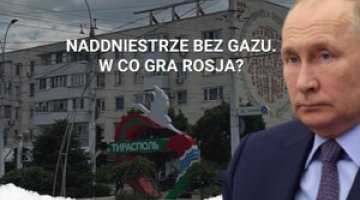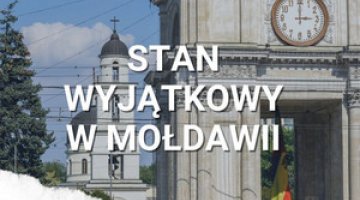Moldova: the fall of Valeriu Strelet’s government
On 29 October, Moldova’s parliament passed a vote of no confidence in the coalition government led by Prime Minister Valeriu Strelet. The motion was backed by 65 deputies (out of 101) from the Socialist Party led by Igor Dodon, the Communist Party, and the Democratic Party of Moldova (PDM), which until recently had been a member of the government coalition. Deputies from the Liberal Democratic Party (PLDM), from which Strelet originates, the Liberal Party (PL, the smallest grouping in the government coalition) and the deputies centred around the former prime minister Iurie Leanca voted against the motion. The official reasons for the motion which the Socialists and the Communists brought included suspicions that Strelet had been involved in corrupt practices, including unclear political and business connections with Vlad Filat, the former prime minister and PLDM leader, who was detained on 15 October. Following the government’s dismissal, the leader of PDM, Marian Lupu, announced the launch of negotiations in order to re-create a pro-European coalition alongside PLDM, PL and deputies linked to Iurie Leanca.
Commentary
- PDM’s support for the motion of no confidence means that this party has been unable to convince PLDM to co-operate since the arrest of Vlad Filat. Vlad Plahotniuc is an oligarch, the real leader of PDM, and the strongest politician in Moldova, and it seems that from his perspective, removing Filat from power and maintaining the government coalition in its previous shape was the optimal scenario. It allowed him to get rid of his key political and business opponent and at the same time to maintain a parliamentary majority. Since PLDM has moved over to the opposition, it will lose its previous influence (including financial) and is also likely to disintegrate in the near future.
- The dismissal of the Strelet cabinet means the end of what was called the pro-European coalition. Although PDM has made efforts to re-forge the alliance with PLDM without Filat, this scenario seems rather unlikely. It should be expected that an attempt will be made in the coming weeks to form a new government. PDM, the Communist Party, PL, and probably the deputies representing the party led by former prime minister Iurie Leanca as well as a section of deputies from PLDM who support him are likely to be members of the new coalition. However, there may be resistance from some of the groupings (mainly PL) to the Communists joining the coalition, even though their support will be necessary to gain parliamentary majority, and this may impede the formation of a coalition in this form. Whatever form it takes, the new coalition will be under the very strong influence of Plahotniuc, who is thus strengthening his political hegemony, but the situation in Moldova will remain unstable.
- The dismissal of the cabinet, even though it was among the key demands of both pro-European and pro-Russian demonstrators who have been protesting in the centre of Chisinau since September, is very unlikely to soothe public sentiment. The demonstrators focused around the pro-Russian Socialist Party and Renato Usatii’s Our Party are almost certain to continue their protests, demanding a snap election and the president’s resignation. The movement Dignity and Truth (DA), the main organiser of the protests has been losing ground since it has failed to take a clear stance after Filat’s detention and it will continue to weaken. This movement is additionally harmed by the allegations that DA’s protests were plotted by Vlad Filat.





